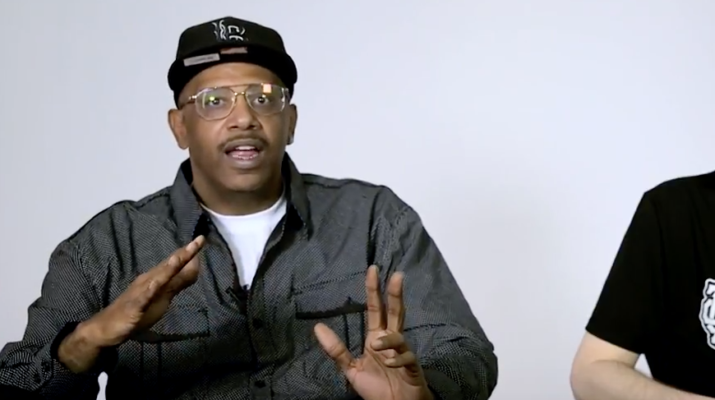The 1991 release of Death Certificate is responsible for birthing an unflinchingly grittier Ice Cube after his departure from arguably the most influential rap group of all time (N.W.A). Trailing closely behind AmeriKKKa’s Most Wanted and Kill at Will, Death Certificate is one of the greatest Hip-Hop albums of all time. Having gone certified platinum in less than two months, Death Certificate was the source of much controversy due to its racially and politically charged content and the acerbic statements on drug dealing, racial profiling, and the right to keep and bear arms. Organized as two thematic elements of a larger whole, Death Certificate opens with Cube’s explanation: “The Death Side: a mirror image of where we are today; The Life Side: a vision of where we need to go.”
On a recent episode of Best Albums, Soren Baker and RBX, former Death Row Records contributor and Aftermath Entertainment collaborator, discuss the impact of Ice Cube’s infamous Death Certificate album and how it elevated the rap beef climate and recounts the atmosphere in L.A. during that time.
“When I came back home to L.A. from playing football at UNLV, the beef was going on,” RBX says of Ice Cube’s problems with N.W.A. “People were saying, ‘Cube left and turned cold,’ but I think what they didn’t anticipate was the tenacity and the heart of Cube. I was torn, because I still had my allegiance to the Eazy-E team. But from an artistry standpoint, you had to give Cube his props … I’m like, ’uhh ohh they (Ruthless Records) got problems.’
In this current era of hip-hop, listeners are swayed to believe rappers’ beef such as Tekashi 6ixNine and Lil’ Pump’s protagonist trolling ways, is unique to the new generation when in fact this narrative was adopted by some of rap’s greatest legends more than 30 years ago. However, Death Certificate wasn’t just a catalyst furthering the divide between Cube and Easy-E, though. It also delivered a messaged and sought to enlighten people who were caught in the struggle living while Black in L.A. brought.
“Cube was getting enlightened,” says RBX. “He wasn’t just enthralled in the gang bang thing. It was the gang bang thing intertwined with some enlightenment. So, he’s giving you a message and that’s what put it over the edge.”
With “No Vaseline” being a prominent track on the album and arguably one of the best dis tracks of all time, RBX illustrates how the track torched the beef and solidified the West Coast legacy in Hip-Hop history.
“When I heard it, I thought ’that’s going to be hard to come back on,” RBX describes. “That was Hip-Hop history and part of the West Coast legacy, so I always got respect for that song. He did it raw and uncut; took the candy sprinkles off. Cube wasn’t thinking about salvaging the relationship.”
Death Certificate is celebrated over 25 years later due to its unapologetically raw narration of the Black American experience surrounding racism and oppression via community examinations or self-reflection. The way Cube could dissect and articulate the Black experience was enlightening to some, while peeling back the stereotypical thuggish outline he was cast into, thus, painting the iconic rapper with a broader, more artistic brush.
“It was enlightening to hear Cube, who everyone pigeonholed as a gangster showing his growth,” RBX explains, “showing, ‘This is what I was, but this is what I’m becoming,’ and breaking down the whole structure of why, the mathematics of it.”
Although rap is constantly evolving into an artform that is as unpredictable as Kanye West, one thing remains etched in stone: Ice Cube’s Death Certificate is a classic and contains material that is still relevant and timeless to American culture and the Black experience. Both Baker and RBX agree this album is easily one of the best albums of all time and give a detailed snapshot as to why.
“I would say the growth from Ice Cube, the combination of different styles, different subject matters and the coherency, the way the record moved…,” RBX concludes. “Back in those days, I would go straight to the joint I liked, then after the joint I liked, I would probably branch out. But this was one of those things you put on and you could hear the story move. You wanted to watch the whole movie, and I thought that was brilliant.”
